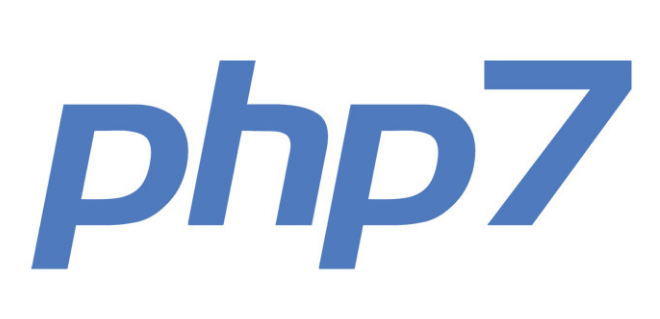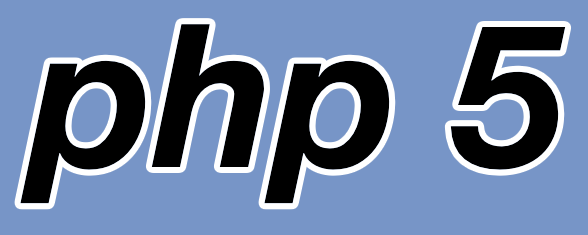PHP (Hypertext Preprocessor) is a general-purpose server scripting language and a powerful tool for making dynamic and interactive web pages. PHP is widely used, free and efficient alternative to competitors such as Microsoft’s ASP. PHP was originally created by Rasmus Lerdorf in 1994 and is now produced by the PHP group.
PHP code may be executed with a command line interface (CLI), embedded into HTML code, or used in combination with various web template systems, web content management system and web frameworks.
PHP 7 Description

One of among the things to have happened in the PHP area since the release of the major version PHP 5, is the release of PHP 7 in 2015. There are lots of features and performance upgrades that have been added in PHP 7 that have resulted to performance of websites increasing by 60-70%. PHP7 extends the previous type declarations of parameters in methods (classes, interfaces and arrays) by adding the four scalar types; integers (int), floats (floats), Booleans (bool) and strings (string) as possible parameter types. More importantly, PHP 7 comes with new syntax features while not extending the capabilities of the language itself; they provide a better or easier way of making your code more enjoyable to write and pleasing to the eye.
What You Need To Know About PHP 7
- PHP 7 uses a brand new model of engine referred to as PHP-NG or Next Generation. This engine significantly improves performance as much as twice with optimized memory usage. It also requires fewer servers to serve the same number of users as before.
- PHP 7 allows programmers to declare the return type of the functions as per the expected return value. This makes the code robust and accurate.
- With PHP 7, the process of handling fatal errors has been made quite simple. It has replaced major errors with exceptions that can be handled in a simple manner.
- PHP 7 has 64-bit support and therefore the programmer is able to use native 64-bit integer as well as large files and in this regard run several applications on the 64-bit system architectures without any error or errors.
- Coalescing operator denoted by double question mark (??) is another important feature of PHP 7. The operator is used to check whether something exists or not. If something does not exist, it returns the value of the right operand. In case something exists it returns the value of left operandi. And in circumstances where both do not exist, it returns NULL.
- PHP7 comes with a new operator popularly referred to as spaceship operator which hasa notation <=> . The operator has become very useful to the programmers as they are using it to sort out various combined comparisons. The operator is considered to be a replacement for library function version-compare (). It returns zero when the operands are equal and 1 when the left side is greater than the right and -1 in case of the opposite.
- In PHP 7, a developer can create an anonymous class for a one-off use, rather than creating a full definition of class that is required only once in entire application. Anonymous class is used to speed up the execution time.
- PHP 7 introduces Group Use Declaration according to which, the programmers will be able to include classes from the same namespace and make the code more readable and compact.
- Examples of advanced features of PHP 7 include CSPRNG functions, Return type declaration etc.
Also Read: Difference Between Source Code And Object Code
PHP 5 Description

PHP 5 was released 4 years after the introduction of PHP 4 to the internet scene, aimed to bring a brand new functionality to the PHP language. The PHP team focused on what was missing or not well supported in the older versions. PHP 5 mainly is focused on 3 major areas: Object-oriented programming, xml and MySQL support. In PHP 4, XML tools did the job, but were not really designed to work together and often patches were required to achieve the needed functionality. PHP 5 brought a reworked XML parser, with tools, able to work with one another.
What You Need To Know About PHP 5
- PHP 5 uses the old version of engine referred to as Zend II and therefore its performance is way below that of PHP 7.
- PHP 5 does not allow programmers to define the return type of a function or method. This has for a long time been a limitation especially when it comes to real-time coding scenarios as the programmers are unable to prevent unwanted return types and generate exceptions in otherwise case. Return types include bool, int, string and float.
- It is quite difficult to handle fatal errors in PHP 5.
- PHP 5 does not have 64-bit support and therefore it does not support 64-bit integers as well as large files.
- The developer has to write explicit code to return the null value if the value is not available.
- PHP 5 does not have a spaceship operator. A lot of operators have to be used for comparisons.
- In PHP 5, there is no concept of anonymous classes.
- In PHP 5, there is an Individual declaration for common namespaces.
- Examples of advanced features of PHP 5 include Superior Soap Implementation, improvement to XML extension etc.
Also Read: Difference Between Anaconda And Python Programming
Difference Between PHP 5 And PHP7 In Tabular Form
| BASIS OF COMPARISON | PHP 7 | PHP 5 |
| Engine Version | PHP 7 uses a brand new model of engine referred to as PHP-NG or Next Generation. This engine significantly improves performance as much as twice with optimized memory usage. | PHP 5 uses the old version of engine referred to as Zend II and therefore its performance is way below that of PHP 7. |
| Defining Of The Return Type Of A Function | PHP 7 allows programmers to declare the return type of the functions as per the expected return value. This makes the code robust and accurate. | PHP 5 does not allow programmers to define the return type of a function or method. |
| Handling Of Fatal Errors | The process of handling fatal errors has been made quite simple. | It is quite difficult to handle fatal errors in PHP 5. |
| 64-Bit Support | It has 64-bit support and therefore the programmer is able to use native 64-bit integer as well as large files and in this regard run several applications on the 64-bit system architectures without any error or errors. | It does not have 64-bit support and therefore it does not support 64-bit integers as well as large files. |
| Coalescing Operator | Coalescing operator denoted by double question mark (??) is another important feature of PHP 7. The operator is used to check whether something exists or not. | Does not have coalescing operator. The developer has to write explicit code to return the null value if the value is not available. |
| Spaceship Operator | It comes with a new operator popularly referred to as spaceship operator which hasa notation <=> . | It does not have a spaceship operator. A lot of operators have to be used for comparisons. |
| The Concept Of Anonymous Class | Anonymous class is used to speed up the execution time. | There is no concept of anonymous classes. |
| Declaration For Namespaces | It introduces Group Use Declaration according to which, the programmers will be able to include classes from the same namespace and make the code more readable and compact. | There is an Individual declaration for common namespaces. |
| Examples of Advanced Features | Examples of advanced features of PHP 7 include CSPRNG functions, Return type declaration etc. | Examples of advanced features of PHP 5 include Superior Soap Implementation, improvement to XML extension etc. |
Also Read: SOAP API vs REST API